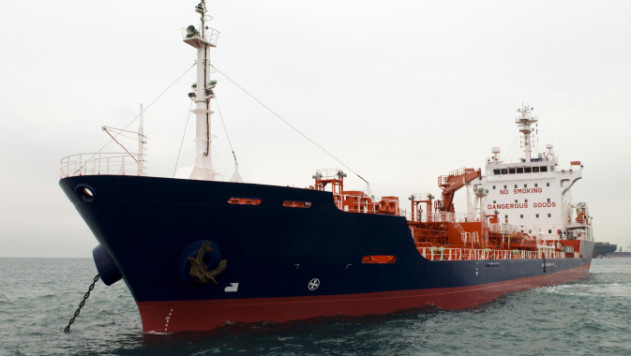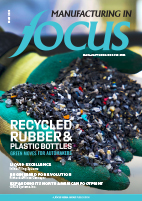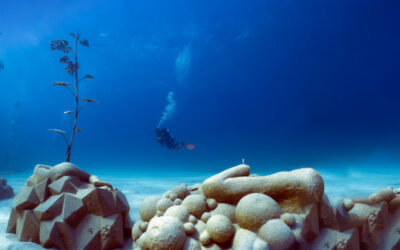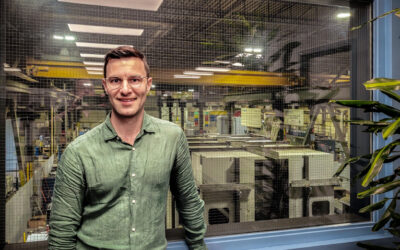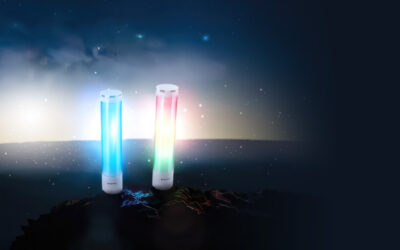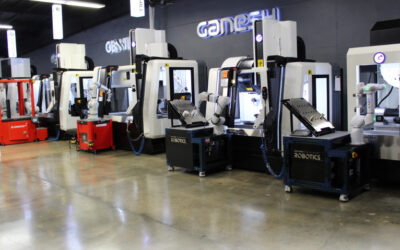Gulf Island Shipyards, LLC has forged an industry-wide reputation as one of the finest shipyards in America. Over the past fifty years, it has grown to four strategically located facilities across the state of Louisiana. Gulf Island has the experience, equipment, design capabilities, fabrication know-how and necessary space to take on a broad range of new construction and repairs.
~
“We have two-and-a-half yards dedicated to repair, and we have one-and-a-half yards dedicated to new construction,” says Manager of Business Development Dan Gaiennie.
Gulf Island is well-equipped to build and maintain a variety of vessels. Its large staff of between six hundred and seven hundred includes boat-builders, fitters, welders, pipe experts, electricians, engineering and commissioning workers, management, production engineering experts, management, business development, safety and quality specialists.
The facility boasts over 130,000 square feet of covered fabrication shops to ensure weather will not slow project completion, and it is fitted out with the latest equipment, computer-aided plasma cutting machines, a 200-ton module transporter, a fully stocked warehouse and over 5,700 feet of wet dock. An eight-thousand-square-foot pipe shop houses automated CNC pipe equipment enabling workers to prefabricate and spool pipe indoors before moving it to vessels for installation. Gulf Island has constructed and launched marine equipment six hundred feet long, with a launch system capable of seven hundred feet.
“For the most part, we are a steel fabricator,” states Gaiennie. The company also occasionally works with aluminum. Historically, Gulf Island worked on creating large jackets and decks for offshore installation and has spent years in the steel, welding and fabrication world, constructing such works as tank barges.
“We can build tugs and barges and offshore supply vessels, pasture vessels, fishing vessels, casinos, jack-ups and more,” says Gaiennie. “If it’s made out of steel and aluminum, we can build pretty much anything.”
The history of Gulf Island Shipyards, LLC is as rich and varied as the many vessels it has crafted and repaired over the decades. Lee Vaccari purchased his first shipyard in Jennings, Louisiana in 1965 and soon changed the company name to LEEVAC Industries, LLC. Vaccari’s son Christian has grown up in the industry and is now the company’s chairman and chief executive officer. Christian has expanded the company, which today has sites throughout Louisiana in Lake Charles, Jennings and two in Houma.
Easy access to the Gulf of Mexico and the Intracostal Waterway is gained from its four facilities. The full-service shipyards proudly serve America’s commercial maritime industry from coast to coast.
Gulf Island Shipyards designs, manufactures and repairs everything from tow boats seventy feet in length to tank barges about five hundred feet long. This includes specialized repairs for liftboats – a boat that can raise its hull above the water on stilt-like legs to create a stable offshore work platform – and dredge boats. Some of the repair and upgrading projects the company has worked on over the years include freshwater vessels dating back to 1936 that are still used today. Boats that pass through the company are used for a myriad of purposes from offshore supply, platform support vessels and oilfield specialty and research vessels to crew boats, supply boats, inland and ocean-going tugboats, commercial fishing vessels, barges, workboats, passenger vessels, excursion and even casino boats.
Gulf Island’s client list includes customers such as Alabama Power, Ameristar Casinos, Bay Transportation, Caruthersville Riverboat, Gateway Clipper Fleet, Gulf Offshore Marine, Harrah’s Lake Charles, Jumer Boat Works/Rock Island, LaFarge Corporation, Mercedes-Benz Credit, the State Of Louisiana, Zapata and many others. It has also served the government and military.
Two of Gulf Island Shipyards biggest markets are brown water – such as tugboats working up and down the Mississippi River and in intercostal areas – and blue water – the large offshore vessel and articulated tank barges going to East Coast locations such as New York.
Approximately half of Gulf Island’s business is repair and half is new construction, although it also provides ship engineering, conversion and related marine transport services. Engineers use sophisticated computer modeling programs to provide clients with final designs that are ready for regulatory approval. The time to build a new vessel depends on how much engineering has been approved and completed. A large-scale project with numerous systems will take about two years, whereas a tank barge can be completed in as little as fifteen to eighteen months.
For the past half century, Gulf Island Shipyards has continued to earn the trust and business of new and repeat clients and is widely recognized for the quality of its work. Much of the company’s ongoing success is the result of its team of skilled and highly dedicated workers and a seasoned management team. These professionals have an extensive array of skills, proven track records and an average of thirty years’ experience.
Gaiennie himself joined LEEVAC in 2013 after previously working for a vessel owner in a number of capacities including as a director of engineering. He has been involved with new construction and retrofitting, specification writing, design, development and operational support.
For customers requiring vessel repair, conversion and marine transportation services, Gulf Island’s many years of industry experience qualifies the company to repair or convert all barges and vessels, including refitting, electrical upgrades, marine paint, steel replacement, scheduled maintenance, mechanical repairs and more – all performed with minimal vessel downtime.
Gulf Island recently put in a bid for a project involving New York’s world-famous Staten Island ferry service and is presently working on a project that started as a supply vessel and is now being converted to a yacht tender for a customer. It has recently seen an increase in the modification of fishing vessels.
The company has a distinct advantage in that it is backed by a large, publicly held company and has access to capital and resources lacking among its competitors – such as massive, multi-wheel transporters used to move modules weighing thousands of tons.
“We have that available to us, so those kind of things make us more competitive,” says Gaiennie. “We are publicly held, have a strong safety record, a lot of proven policies and performance data and a lot of resources available to us because we are part of the Gulf Island fabrication family.”

